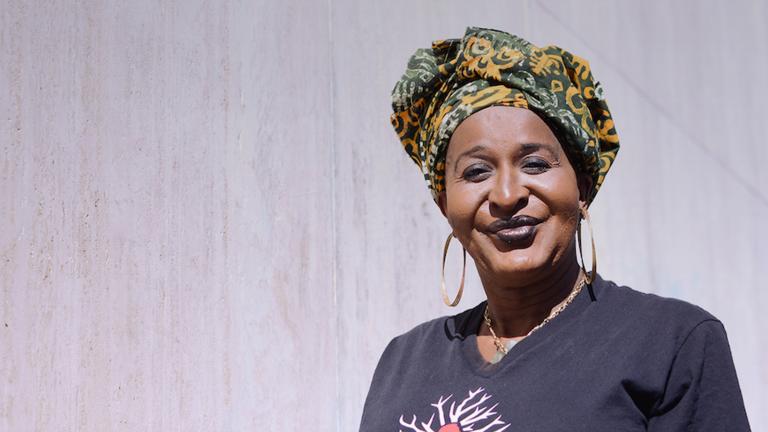Discover your fit among CIIS' five counseling psychology concentrations, each offering a unique path to becoming a transformative healer.

Out Louder: Public Program's Trans Activists Lecture Series
The Trans in SF series included filmmakers, visual artists, writers, and deepened the conversation started in 2014 with Laverne Cox.
“I should not have to prove who I am on a regular basis or be who you think I am because you don’t approve of how I exist,”
says Miss Major Griffen-Gracy, a black, formerly incarcerated, transgender elder who has been fighting for transgender rights for more than 40 years.
Miss Major was at the Stonewall Inn when police raided the bar in 1969. She fought back against police brutality on the frontlines during the Stonewall Riot and has continued to fight for trans liberation as the former executive director of the Transgender GenderVariant Intersex Justice Project (TGI Justice), assisting trans people who are disproportionately incarcerated compared with cisgender people.
At CIIS, Miss Major kicked off Public Programs & Performances’ Trans in SF Lecture Series in October with “From Stonewall to Trans Tipping Point,” a conversation with Annalise Ophelian, director of MAJOR!, a new documentary about Miss Major. The film premiered at the Castro Theatre as part of the San Francisco Transgender Film Festival in November.
From Laverne Cox to the Lectures
In March 2014, Public Programs & Performances featured Orange Is the New Black star Laverne Cox at a packed lecture titled “Ain’t I a Woman?” Hundreds of people filled the Nourse Theater to hear Cox’s story, which began with a special tribute to Miss Major for her decades of activism. Theresa Sparks, Executive Director of the San Francisco Human Rights Commission, who is also part of the series, introduced the lecture.
The Trans in SF series, which also included Janetta Johnson, TGI Justice Executive Director; and Dr. Kortney Ryan Ziegler, filmmaker, visual artist, writer, and blogger, continued and deepened the conversation that started in 2014.
Miss Major describes the “Trans Tipping Point,” the recent media spotlight on high-profile transgender celebrities, as being like a faulty champagne glass tower at a wedding. “The champagne gets poured into the top glass, but instead of spilling over into all the other glasses, it just gets trapped in that one glass way at the top,” she says.
”My girls and I are still struggling for respect, to find jobs, go to school, learn a trade, and to be allowed to have lives.” Johnson’s lecture “Trans Resistance and Resilience: From Solitary to Re-Entry” starts with the question “Why are transgender people being incarcerated at disproportionate rates?” She says it is a combination of forces: disenfranchisement, discrimination, lack of jobs and affordable housing, sex work, assumptions of sex work involvement, racism, police violence, and poverty, among others.
Johnson survived three years in a Florida federal prison. In 1997, she was given the phone number of Miss Major, then a stranger living thousands of miles away, on advice that she helps transgender women. That phone call changed her life.
”I called Miss Major and told her I was having a hard time. I needed employment. I wanted a better life than working on the streets, and I asked her for help. Since I moved here, she’s been my mother,” Johnson says.
Johnson has been working side-by-side with Miss Major at TGI Justice to develop strategies and interventions to reduce the recidivism rate of the transgender community. She will be taking over as Executive Director later this year when Miss Major retires.
According to the National Center for Transgender Equality, nearly one in six transgender people, including 21% of transgender women, have been incarcerated in their lifetimes, compared with 5% of the general population in the U.S. “Our community is a community that has been so disrupted. We need to be nurtured in some very intentional ways,” Johnson says.
"Traditionally, when our people get out, they don’t have a family to come to, so TGI is your family. There are enough of us that we are mothers, uncles, and sisters. And you automatically got a grandmother-Miss Major.”
Related Academic Program
Related News
Chris Heuer reflects on his conversation with CIIS’ Bruce Alderman about the Blue Sky Leaders program, exploring how slowing down may be the key to thriving in the age of AI.
This fall, 483 new students began their academic journeys at CIIS with hybrid orientation experiences designed for connection and reflection.



